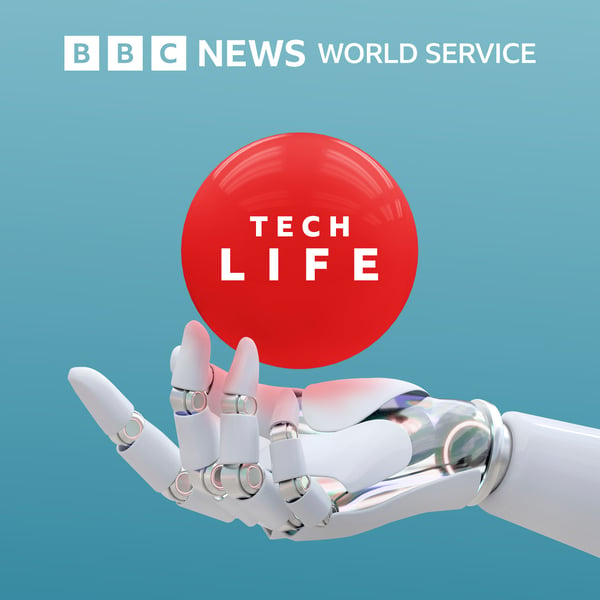Beyond the tip of the iceberg
Tech Life
BBC
4.4 • 221 Ratings
🗓️ 8 April 2025
⏱️ 27 minutes
🧾️ Download transcript
Summary
Tech Life looks at icebergs. Climate change means there are more of them in our oceans, breaking away and slowly melting. Scientists need to study them - but how ? We speak to an expert about robotic gliders, which are opening up new research opportunities.
Also in this edition, can we trust artificial intelligence ? One of its problems is that it hallucinates, so we find out more about it.
How can tech help people who are blind or partially sighted watch TV ?
And our reporter gets his hands dirty examining rhino poo!
You can tell us about the one item of tech that you use in your life everyday – please get in touch by emailing [email protected] or send us a Whatsapp message or voice memo on +44 330 1230 320.
Presenter: Imran Rahman-Jones Producer: Tom Quinn Editor: Monica Soriano
(Image: A photograph of a robotic glider suspended above the water. Credit: Doctor Natasha Lucas)
Transcript
Click on a timestamp to play from that location
| 0:00.0 | You're about to listen to a BBC podcast, but this is about something else you might enjoy. |
| 0:05.4 | My name's Katie Lecky and I'm an assistant commissioner for on demand music on BBC Sounds. |
| 0:10.7 | The BBC has an incredible musical heritage and culture and as a music lover, I love being part of that. |
| 0:17.4 | With music on sounds, we offer collections and mixes for everything, from workouts to |
| 0:22.4 | helping you nod off, boogie in your kitchen, or even just a moment of calm. And they're all |
| 0:28.1 | put together by people who know their stuff. So if you want some expertly curated music in your life, |
| 0:34.9 | check out BBC Sounds. Welcome to TechLife on the BBC World Service, the program about technology and how it affects the world all around us. |
| 0:44.9 | I'm Imran Rahman Jones and this week we're looking at icebergs. |
| 0:49.5 | Climate change means there are more of them in our oceans, breaking away and slowly melting. Scientists need |
| 0:56.6 | to study them, but how? We speak to an expert about a piece of kit opening up new research |
| 1:02.2 | opportunities. Can we trust artificial intelligence? One of its problems is that it hallucinates. |
| 1:10.1 | I'll be explaining what that's all about. |
| 1:12.7 | We find out about the tech that's helping blind and partially sighted people |
| 1:17.0 | follow what's going on on TV shows, |
| 1:19.7 | and our reporter Alistair Keane gets his hands dirty, examining Rhino poo. |
| 1:43.2 | Music examining Rhino Poo. Last month, the world's largest iceberg ran aground in shallow waters off the remote island of South Georgia in the South Atlantic. |
| 1:51.4 | And it's huge, about twice the size of London and weighing almost a trillion tonnes. |
| 1:57.5 | Scientists say it's packed full of nutrients which could create an explosion of life as it melts, |
| 2:02.6 | but at the same time smaller chunks might break off becoming hazards to passing ships. |
| 2:08.6 | As global warming affects the polar caps, how do you study a gigantic mass of ice floating in cold waters? |
| 2:15.6 | Well, experts have just published details of a research mission |
| 2:19.3 | that used underwater robotic gliders. They're torpedo-shaped devices with small wings and fitted |
... |
Please login to see the full transcript.
Disclaimer: The podcast and artwork embedded on this page are from BBC, and are the property of its owner and not affiliated with or endorsed by Tapesearch.
Generated transcripts are the property of BBC and are distributed freely under the Fair Use doctrine. Transcripts generated by Tapesearch are not guaranteed to be accurate.
Copyright © Tapesearch 2025.

